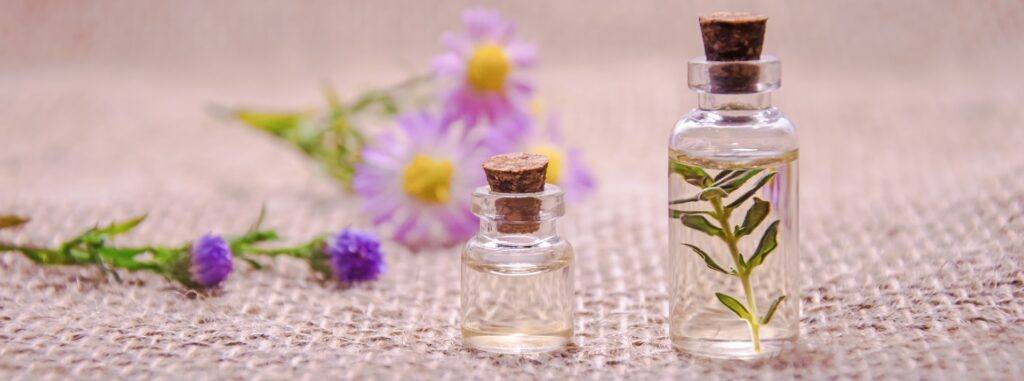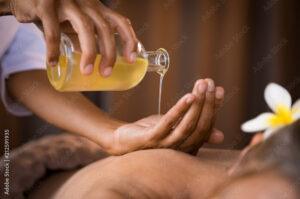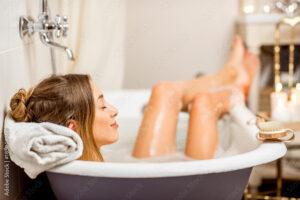Aromatherapy: 5 Essential Oils For Wellbeing

There are many oils that can be used for aromatherapy, but here are 5 Essential Oils for Wellbeing. They can be used seperately or in a mix with carrier oil. They are not the be all or end all of oils that you can use but it is a start into the wonderful world of Essential Oils and Aromatherapy.
What is aromatherapy?
A form of alternative medicine, aromatherapy is the extraction of aromatic oils from all parts of the plant. The term ‘aromatherapy’ was first used by René-Maurice Gattefossé, a French chemist, in the 1920s. But for centuries prior to that, ancient cultures had been applying the healing powers of oils for medical treatments, sensuality, hygiene and spirituality.
These cultures recognized the power of the olfactory system to encourage good health and happiness, mainly because they knew that the mind and body worked as one. So, it’s understandable that if your mood can be uplifted with aromatherapy, then the body would respond in the same way..
How aromatherapy works
But exactly how does it work? Aromatherapy depends on the impact of our sense of smell on the brain. When we inhale a scent, it travels directly to the amygdala, the emotion center of the brain and part of the limbic system which controls memories, instincts, pleasure, hormones hunger, libido, emotions and immunity.
Our sense of smell is 10,000 times more powerful than our other senses which are why smell has such a profound effect on us..
How to use essential oils
Inhalation
Take a whiff right out from the oil bottle. Or you can apply a few drops to your wrist, back of your neck, or behind your knees and you’ll instantly feel the effect. You can also use a diffuser to fill the room with your chosen aroma.
Another common technique is using a spritzer or steam inhalation which can alleviate respiratory problems. Compresses, basically a washcloth steeped in water infused with essential oil (half a cup of water and 8 – 10 drops of oil), are also used for soothing and relaxation.
Massage
Getting a massage with essential oils means you’re getting double the benefit. Plus, massage allows your pores to open up and soak the oil more efficiently.
And since essential oils are highly concentrated, your massage therapists should dilute them in any type of carrier oil first to prevent skin irritations, as well as increase the rate of absorption of the essential oil.
A skin test should also be carried out by applying a drop on your inner arm, then waiting several minutes. If there’s any unfavorable reaction, cover the area with vegetable oil, then wash off with warm water and soap.
In your bath
Add 6 – 12 drops of essential oil into a dispersing agent (a carrier oil, like coconut, almond, or olive oil, or your favorite shower gel). The basic ratio is 5 drops of oil to half a teaspoon of carrier oil, adding or reducing as you please. Give it a quick mix then fill your bathtub with warm water to help your skin absorb the oil and enjoy.
When to use essential oil
Unless specified by your doctor, or if you’re pregnant or breastfeeding, suffer from high blood pressure or epileptic seizures, aromatherapy can be used at any time and at any place.
5 scents that improve wellbeing
1. Chamomile
This essential oil can alleviate inflammation, and help headaches, pains, allergies, relieve colicky babies, improve digestion, ease away menstrual cramps and calm the nerves.
Diluted chamomile oil can be dabbed on cuts for quick relief because of its potent antiseptic properties. Or you can drop a couple of drops in a pot of warm water for respiratory relief. You can also use it in a diffuser, spritzer or vaporizer to enhance better sleep because of its relaxing properties. Bear in mind to avoid chamomile in any form if you’re allergic to the ragweed family.
2. Lemon
This zesty citrus fruit has an uplifting aroma which wakes up the senses. Lemon oil helps the brain release serotonin, one of our ‘happy hormones.’ It’s the most potent of all essential oils in its ability to act as an antimicrobial agent. Inhaling it helps clear up sinuses and other respiratory problems. It also helps fuel creativity, boosts energy levels and improves digestion. Lemon oil can add to your hair and keep your scalp dandruff-free. Massaging into your skin helps get rid of cellulite, boost immunity and enhance circulation.
You can even use it to polish shoes, furniture and metal. It’s a strong grease cutter so it works great on cleaning oily countertops and surfaces.
3. Peppermint
The strong smell of this essential oil helps keep you cool, focused and alert. If you’re feeling sluggish, this is the essential oil for you. Research shows that those who inhaled peppermint oil had more drive, cognitive vigor and improved performance.
It also helps protect your gums, clear sinuses and prevent digestive problems, such as bloating and gas. In addition, it can alleviate jet lag, nausea, indigestion and motion sickness. Because of its anti-inflammatory properties, plus its ability to stimulate circulation, peppermint oil helps alleviate joint and muscle aches and pains.
4. Rosemary
Rosemary fights off depression, reduces the release of cortisol (the stress hormone) and boosts energy levels. It helps stimulate blood circulation to your scalp, giving you shiny, healthy hair. When inhaled, it clears the sinuses, boosts your memory and concentration abilities.
If you’re working and find it hard to think clearly, spritz some rosemary oil, or place a few drops in a diffuser, to clear away brain fog and regain clarity. When massaged into the skin, it gets rid of cellulite, varicose veins, eczema and acne. It also eases constipation and menstrual cramps.
5. Sandalwood
The woody, warm scent of this essential oil acts as an anti-inflammatory, antibacterial, antipyretic. It can calm itches, soothe sunburn, ease joint pain. It also works at decreasing high blood pressure levels and calming heart rate. It’s a wonderful mood enhancer and emotional stabilizer.

